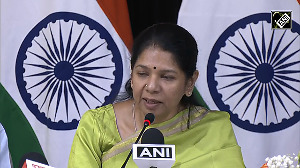A few weeks ago, contrary to speculations among the Chinese, Zhao Baige, deputy director of the National Population and Family Planning Commission of China, announced that the country would be continuing with its one-child policy for another five-year term starting 2011.
China's one-child policy is more or less only on the papers, as state media reports in 2007 show that at least 44 percent of the population has already overstepped the policy, reported The Wall Street Journal.
Three decades after China came up with the one-child policy, the government has diluted many of the rigid rules allowing exceptions for many sections of the population -- such as rural families, almost all ethnic minorities, parents who are themselves the only children among others.
While for those who not fall in these exempted sections, don't mind paying the fines and forgoing certain free public services to have another child. This is especially true of the rich and residents of Beijing, where the one-child policy is still strictly applied.
"I believe the policy is slowly being relaxed and will eventually be removed. But there is a bureaucratic machinery that now protects the existing system, so I think this will take time," said John Bacon-Shone, associate dean for research in the social sciences department of The University of Hong Kong.
Though the fines are high -- calculated by multiplying many times the per-capita gross domestic product of the family's area of residence, they are not strictly enforced, say Chinese parents who have had more than one child.
While the Chinese citizens are too eager to get way with the policy, the government too needs to awaken to the realities. While the working young population is reducing by the year in China, the numbers of the ageing dependent people is forming a majority of China's population.
The fertility rate is estimated between 1.6 and 1.9 much below the replacement level of 2.1. And if this trend continued, China's population may soon decline in a couple of decades, the daily said.





